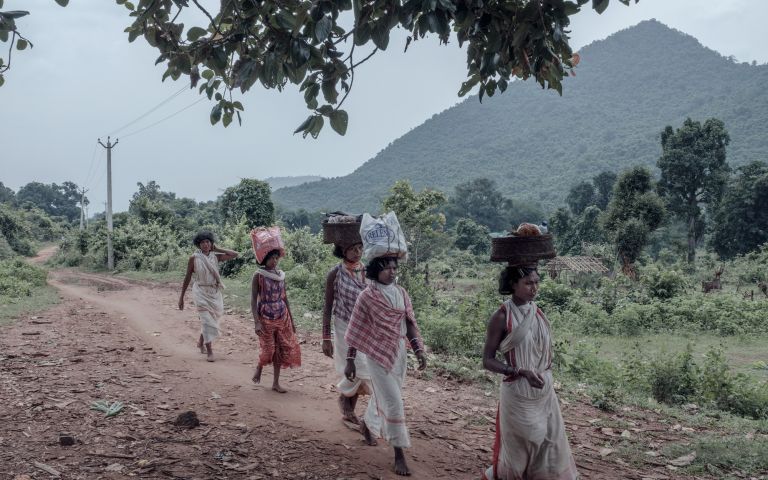Since the colonial period, forest land in India has been held as property of the state, which means the tribal communities that inhabit them have denied any property rights. As a result, Adivasis—or the tribes of the mineral-rich forest belt of central India—have faced continuous displacement for modern projects, especially large mining operations.
A singular exception are the Dongria Kondh, in the state of Odisha, who put up unanimous resistance to the effort of the Vedanta Group to mine bauxite from the Niyamgiri hills, which Kondhs consider sacred—gods embodied in the land. A non-violent struggle defeated the proposal in 2013, thanks to new legal reforms and a resilient tribal leadership comprising significantly of women.
Like most Adivasi groups, the Kondhs are a society in which women have far greater equity with men than in surrounding non-tribal society. The women’s defense of their lands is also, in that respect, a defense of their status in a world that is still culturally intact and trying to remain so.
Their victory is a precarious one. Under a new national government, elected in 2014 with a mandate for economic growth, reforms are being undone, and the drive to mine in Niyamgiri has resumed—beginning with an assault on tribal women leaders, some of whom were arrested in 2017 as Maoist rebels.


